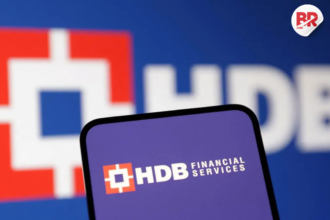
Hindustan Unilever Limited (HUL) has agreed to take down certain advertisements after Honasa Consumer Ltd, the parent company of Mamaearth, raised concerns over product resemblance and misleading claims.
The ads, Honasa claimed, closely mimicked its brand’s packaging and messaging, potentially confusing consumers and piggybacking off Mamaearth’s hard-earned market trust.

So, What Does This Mean for You and Me?
In a crowded market where every shampoo bottle promises “miracle results,” trust and brand recognition play a big role in what ends up in your shopping cart. If two products look nearly identical, who’s to say you’re buying what you think you are?
For consumers, it’s about clarity. For brands, it’s about fairness. And for everyone? It’s a reminder that even in ads, imitation isn’t always the sincerest form of flattery—sometimes it’s just brand warfare in disguise.
The HUL Ad Controversy: Where It Started
Honasa objected to visual similarities in HUL’s ads that they say mirrored Mamaearth’s design—especially its distinctive orange packaging and “online bestseller” claims. In response, HUL has agreed to:
- Pull down online ads within 24 hours
- Take down physical ads within 48 hours
- Modify packaging visuals (switching from orange to light yellow)
- Replace “online bestseller” with the more ambiguous “some sellers”
This resolution helps avoid a drawn-out legal battle but also raises a key question: Where’s the line between healthy competition and unfair advantage?
Also Read: Vance Visit Tests India-US Relations as China Exclusion Roils Global Trade
The Bigger Picture: Ethics in Advertising
This is more than a brand tiff—it’s a reflection of how fiercely competitive the FMCG sector has become in India. As ad budgets grow and product categories overlap, brand identity theft is no longer just a design fluke—it’s strategic.
Here’s why this matters:
- Originality counts: Mimicking another brand blurs identities and misleads customers.
- Brand recognition is currency: Years of building trust can’t be hijacked in one campaign.
- Truth in advertising is non-negotiable: Claims like “bestseller” must be verifiable, not vague.
In the age of digital-first marketing, consumers are watching—and so are regulators. The Advertising Standards Council of India (ASCI) and legal routes are increasingly being used to hold companies accountable.
What Happens Next?
HUL will move forward, likely a little more cautious about how it references competition. Honasa, having successfully defended its turf, may emerge with stronger brand loyalty. For other companies, this serves as a case study in how not to get burned by borrowing too much from the neighbor’s playbook.
And for the rest of us? Hopefully, clearer shelves, honest labels, and fewer “Wait, is this Mamaearth or not?” moments at the store.
Also Read: Why Chinese Firms Are Choosing Minority Stakes in India: The New Geopolitical Playbook












